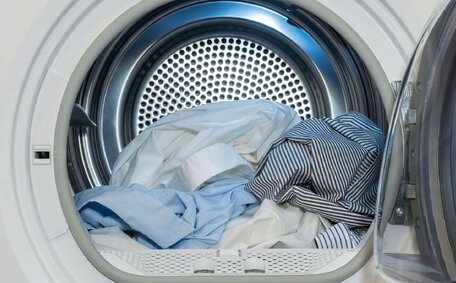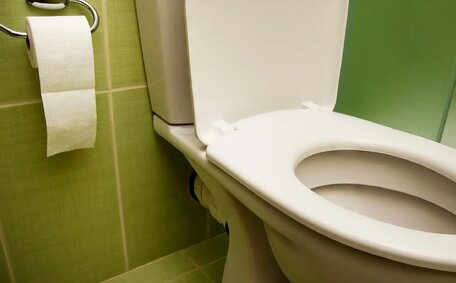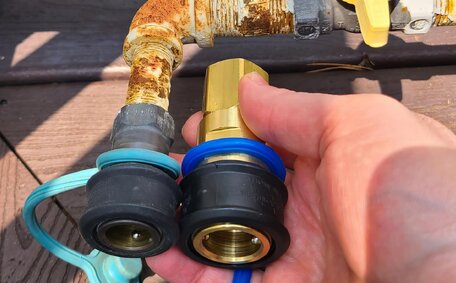Selecting the Right Plumbing Pipe Materials for Your Home
When undertaking any plumbing project, choosing the best materials for your specific requirements is one of the most important decisions. The plumbing pipe options you choose have long-term effects on durability, functionality, and safety.
Homeowners in Ryde and Sydney must ensure their chosen pipe types align with water quality and plumbing requirements before starting any work.
Australian homes utilise a variety of plumbing pipes tailored to varying needs. The most popular plumbing pipe types include:
- Copper pipes, celebrated for longevity, endure both high and low water pressures with outstanding corrosion resistance.
- PEX pipes excel in easy installation and are preferred for hot and cold water lines due to their innovative design, which combats scale buildup and freezing.
- PVC pipes offer a blend of durability and cost-effectiveness, making them a common choice. PVC is a material that can used in projects for waste vent lines and piping.
- Cast iron pipes, known for their exceptional durability and strength, are favoured for sewer and vent line applications.
- Galvanized Steel - Unlike stainless steel pipes, galvanized steel pipe is a type of metal pipes that has corrosion resistance, which when compared other materials may still be prone to buildup and restriction over time due to its rough interior walls.
Selecting the right pipes involves considering their intended use, water quality, pressure requirements, environmental conditions, and local building codes. Consulting a qualified Ryde plumber is essential to customize pipe selection to your specific requirements, ensuring the right materials for your project.
Comparing Durability of Pipe Materials
When evaluating plumbing materials, assessing durability is vital to determine which pipes will last for decades. Choosing durable, robust plumbing pipes tailored to your system can save on replacement costs over time.
With proper installation and quality pipe fittings, copper pipelines, commonly used for water supply, provide easy installation and can exceed a 50-year lifespan owing to their corrosion resistance and strength. Meanwhile, PVC pipes, being one of the most affordable options, have an average lifespan around 25 years, limited by the gradual embrittlement of the rigid plastic. PEX water pipes last 30-40 years, offering more flexibility and improved longevity over previous generations, subject to environmental conditions.
Even though PEX allows for quicker, DIY installations, the superior durability of copper may justify the extra installation effort for particular plumbing needs. Consultation with a professional Ryde plumber can help you know which type of plumbing pipes your project needs, guiding through the available pipes and fittings, creating a customised approach for your convenience, longevity, and budget.
Suitability of Materials for Plumbing Applications
When selecting plumbing materials, it’s important to consider the type pipe and what they will be used for within the home system. Factors such as water pressure, temperature, and desired function strongly influence the suitability of your pipes chosen.
PEX is the preferred choice for hot and cold water lines due to its flexibility and installation ease. Flexible and easy to install, PEX can withstand freezing as well as the temperature and pressure changes of residential water supply, and its also chlorine-resistant, ensuring compatibility with treated drinking water.
PVC piping is commonly used for waste lines and venting applications. Its rigidity, durability and corrosion resistance make PVC also suitable for wastewater removal. PVC’s smooth interior reduces potential buildup and clogs in drains.
Seek advice from a professional Ryde plumber when you need new types of pipe that align with your house’s specific plumbing layout and needs, easing your selection process.
Hot and Cold Water Considerations
Choosing the right pipes for hot and cold water delivery is crucial, with temperature ratings playing a key role. Pipes like PVC possess a maximum temperature threshold, which renders them unsuitable for hot cold water lines despite their durability and lifespan.
PVC pipes have an upper temperature limit of 140°F.
Continual high temperatures lead to leaching of plasticisers from PVC pipes, risking water contamination and material degradation.
Meanwhile, copper offers an ample safety margin for both hot water and cold water circulation. Correctly joined copper pipes manage hot water up to 200°F, with rubber-gasketed variants rated for up to 250°F. Hence copper remains the gold standard for combined hot and cold residential plumbing despite higher upfront costs.
Drainage and Ventilation Requirements
Effective drainage and ventilation are essential components of an efficient plumbing system. PVC is the primary material for drainage systems and vent stacks in Australian homes. PVC offers the rigidity required to prevent sags or blockages in waste pipes, combined with smooth interior walls that prevent buildup.
All the products available for plumbing drainage systems require adequate ventilation to facilitate waste removal and prevent unwelcome odours. Vent stacks made of PVC pipe remove sewer gases and enable optimal wastewater drainage flow. Vents also help regulate water flow, equalising pressure within drain lines and preventing trap seal loss and contamination from drain inlets.
To comply with Australian Plumbing Standards AS/NZS 3500, the choice of materials can be crucial, with pipe diameters, gradients and vent terminations required to adhere to strict specifications. Using the incorrect materials or inadequate ventilation can result in drain clogs, leaks or even sewer gas accumulation indoors. Consulting reputable Ryde plumbers ensures appropriate material selection and venting for local building codes.
Gas Line Compatibility
To ensure your gas lines are safe, it’s vital that the pipe material selected is compatible with gas applications. Australia’s strict regulations mandate that gas plumbing supplies, such as piping, withstand pressures exceeding 350 kPa, remain gas-tight, and resist corrosion from fuel gases.
Brass piping, like rigid copper, is commonly chosen for its durability despite higher costs. Properly joined copper possesses ample tensile strength to meet pressure requirements set out by AS/NZS 5601. Iron pipes such as cast iron and galvanised steel also see some application, although the latter’s inferior resistance to gas permeation makes it a less favourable choice.
Both copper and steel pipes require precision sizing and joining techniques to make your system leak-proof delivery. Press-connect copper fittings avoid potentially faulty soldering, while screw-thread steel connections enable gas-tight seals. Such stringent installations further highlight why certified gas plumbers undertake this specialised work.
Should your new gas appliances require installations or connections into your extension, consultation with qualified Ryde plumbers ensures selection of correctly certified materials coupled with safe, leak-free installation conforming to all Australian standards.
Environmental Factors Influencing Material Selection
When comes to selecting plumbing materials for properties in Ryde and across Sydney, key environmental considerations include soil composition, water hardness and addressing termite risks.
The soil surrounding buried water and sewer pipes must not contain sharp rocks or corrosive elements which could damage piping over time. Sandy soils often mandate concrete encasement for PVC pipes to prevent sagging, while reactive clay soils require water permeability precautions.
Water hardness and pH levels significantly impact the durability of materials, such as those connected to tankless water heaters. Ryde’s moderate water hardness calls for scale-resistant materials, such as copper and PEX, for water heaters, rather than galvanised steel. PEX’s tolerance for soft to very hard water makes it an option you can use in a variety of scenarios.
Sydney’s termite prevalence means avoiding termites access to edible piping materials. Hence, while polypropylene pipes are robust, PVC or copper piping better impedes termite infestations threatening structural integrity.
So before any plumbing project, a qualified Ryde plumber can assess key environmental factors to tailor the best pipe selections for your home or business.
Installation and Maintenance Requirements
Proper installation is crucial for ensuring the longevity and performance of plumbing materials. Copper, a pipe commonly found in homes, is extremely durable yet requires precision joining by soldering or brazing for leak-free water delivery. PEX allows for simpler connections using clamping rings or crimp bands, though care must be taken to prevent overtightening or damage during installation.
All piping should be securely mounted to protect against stresses caused by vibration or movement. Anchoring to structural members avoids sagging over decades. Insulating outdoor water lines protects against expansion and contraction due to Australia’s varying temperatures.
To ease maintenance, ensure valves, unions, and seams are accessible for inspection and repairs. Transition fittings connect different pipe materials, allowing partial replacements without full system re-plumbing. Periodic pipe checks pinpoint minor leaks early before catastrophic failures arise.
Regular drain cleaning of rigid PVC wastewater systems is crucial to remove debris and prevent blockages. Monitoring vent terminations for bird infestations or blockages also preserves drainage capacity.
So while quality materials selection sets plumbing longevity foundations, practising vigilant installation and maintenance perpetuates optimal performance, safety and value from your pipe infrastructure investment.
Choosing Materials for Specific Plumbing Projects
When undertaking plumbing installations or renovations, tailoring material selection to the particular application optimises functionality and return on investment.
PEX pipes, with their corrosion resistance and simple push-fit connections, enable targeted repairs in bathroom plumbing and potable water lines without extensive re-plumbing. Cast iron offers a robust drainage solution for high-rise buildings over 25 storeys, where pressure fluctuations mandate extreme strength.
Meanwhile, copper’s unparalleled longevity suits large-scale redevelopments. Pool plumbing prerequisites also differ, requiring chlorine-resistant piping like ABS plus comprehensive winterization.
Amidst this complexity, factoring scope, budgets and expected lifecycles helps finalise choices. A 20-year lifespan from PVC drainage piping suits a home renovation budget, while 50+ year copper investments make sense for various types plumbing infrastructure, including hospitals. This expedites compliance with building codes too – Ryde’s council mandates specific stormwater drainage grades and load-bearing soil stacks suitable for your type of plumbing when approving renovations.
So whether planning your bathroom renovation, fire sprinkler retrofit or an entire new home build, Ryde’s certified plumbers possess the expertise to translate unique project requirements into tailored plumbing material recommendations. Their extensive field experience, coupled with a solid grasp of local regulations, adds immense value to both residential commercial plumbing projects.
Maximizing Lifespan Through Proper Pipe Selection
When selecting plumbing materials, prioritising quality and durability is key to maximising the lifespan of your home’s plumbing system. Well-chosen pipes and fittings constitute the best plumbing practices to avoid premature failures or replacements, saving significantly on costs over decades of use.
Both copper and modern flexible PEX piping, along with their respective fittings fixtures, offer reliable 30-50+ year lifecycles, and can be central to your home improvement plans under standard residential operating conditions. Opting for these robust pipe materials over cheaper variants with higher failure rates translates into superior long-term value.
Proper installation of various types of pipes your household requires also preserves functionality and postpones wear and tear in your house. Following manufacturer specifications for domestic plumbing pipe handling, jointing techniques and anchoring avoids undue stresses which can precipitate cracks or leaks. Insulating exposed water pipes also prevents damage from temperature fluctuations.
Ongoing maintenance checks equally enhance durability. Annual visual inspections identify potential leaks early before catastrophic pipe failures arise. Drain cleaning every one to two years removes sediment buildup and averts costly emergency blockage clearances.
So by investing initially in quality durable plumbing materials, then properly installing and periodically inspecting them, homeowners protect piping integrity and may even pass robust plumbing systems onto the next generation. Partnering with professional Ryde plumbers leverages decades of field expertise to actualise such longevity gains through appropriate material and component selections.






